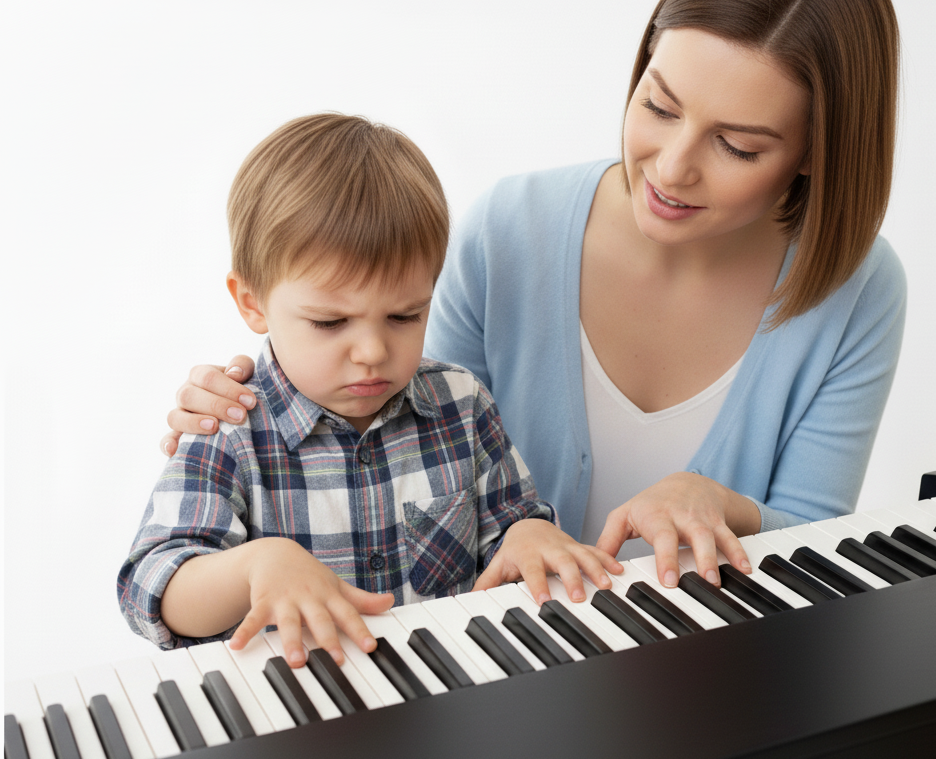Why Kids Quit Piano Lessons (And How to Keep Them Motivated)
- Let's Play Music

- Nov 17, 2025
- 2 min read
Updated: 6 days ago

Why Kids Quit Piano Lessons: What Research Shows
Research from the University of Ottawa’s Piano Pedagogy Department revealed something surprising: nearly 80% of piano students quit within the first three years of lessons.
In “Parting Ways with Piano Lessons: Predictors, Invoked Reasons, and Motivation Related to Piano Student Dropouts” (Karen King, 2016), students and parents shared their reasons for leaving lessons early. The results showed clear patterns that every music educator should know.

Piano Lesson Dropout Rate: Key Findings from Research
Motivation matters most. Students who stayed in lessons were internally motivated because they wanted to play.
Practice habits and parental support made a major difference in whether students continued.
Loss of interest and lack of progress were the most common reasons for quitting.
Traditional lessons often miss one crucial element: connection. When learning doesn’t feel meaningful, even talented students eventually lose interest.
How Let’s Play Music Prevents Kids from Quitting Piano
At Let’s Play Music, students don’t just take piano lessons. They build musicianship from the ground up.
That difference shows in the numbers.💡 Only 20% of our students quit after three years. That means 80% continue learning, growing, and enjoying music year after year.

Here’s why:
Keeping Kids Motivated in Piano from the Start
Our youngest students begin in Sound Beginnings, where music and movement are playful, fun, and family-centered. By the time they move into Let’s Play Music, they already love making music. Piano becomes a natural next step instead of something they are pushed into.
Building Strong Musicianship to Prevent Burnout
Students sing in solfège, move to rhythm, play tone bells, read notation, and understand music theory long before formal piano study begins. This complete foundation helps them make sense of what they play rather than simply memorizing notes.
Age-Appropriate Piano Lessons That Build Confidence
Our curriculum grows with the child. Let’s Play Music (ages 4–6) nurtures creativity through group play, singing, and ear training. Presto (ages 7–12) transitions students into independent piano study with a balance of theory, ear training, history, and performance. Each stage meets children where they are developmentally so they stay confident, curious, and capable.
Helping Children See Themselves as Musicians
Students in our programs don’t just take piano lessons. They see themselves as musicians. This shift from external pressure to personal pride helps them stay motivated for the long term.
The Results
While most traditional piano students stop after a few years, Let’s Play Music students continue because their lessons are joyful, social, and deeply meaningful.
When music education begins with connection, joy, and understanding, it becomes something that lasts for life. That’s the Let’s Play Music difference.
📚 Reference
King, K. (2016). Parting Ways with Piano Lessons: Predictors, Invoked Reasons, and Motivation Related to Piano Student Dropouts (Master’s thesis, University of Ottawa, Ontario, Canada). Retrieved from https://ruor.uottawa.ca/bitstream/10393/35033/1/King_Karen_2016_thesis.pdf
Ready to give your child a music education that lasts? Find a certified Let’s Play Music teacher near you and start building a lifelong love for music!👉 www.letsplaymusicsite.com



Comments